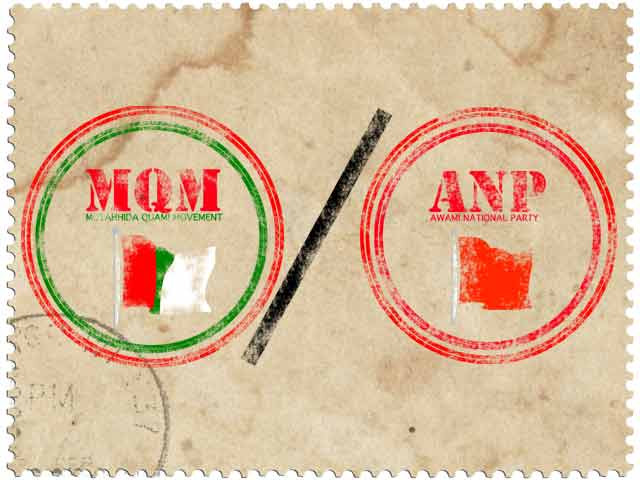Local government: For once, ANP and MQM agree but not with the HRCP
Human rights body had recommended a formula to divide Karachi administratively.

For once the Muttahida Qaumi Movement (MQM) and Awami National Party (ANP) see eye to eye. Both parties rejected a proposal by the Human Rights Commission of Pakistan (HRCP) to divide Karachi into three separate districts.
The HRCP held a press conference on Wednesday to offer a proposal on how to tackle disagreements over running Karachi administratively. It proposed making Lyari-Keamari and Malir two separate districts with the remaining 15 towns clubbed together as a Karachi district.
MQM’s Haider Abbas Rizvi critisised this formula as drawing lines on the basis of ethnicity which could inflame tensions in an already fractured city. “Karachi is already divided into 18 towns,” he said. “We are in favour of the devolution of power and not centralisation. There is no need for bifurcation as every town has its own administrative control over local affairs.” The MQM favours the 2001 local government system that works like this.
Lyari, for example, has always been a Pakistan Peoples Party (PPP) stronghold. “A PPP-backed candidate becomes the nazim there, so what is the point of this suggestion?” he asked.
For its part, the HRCP said that the proposal was meant to address the grievances of people who believe that the last MQM-backed local government did not spend money on development of their neighbourhoods.
For the MQM the HRCP’s draft holds no weight as it and the PPP are in talks over the future shape of local government.
The ANP rejected the HRCP’s draft basd on the reasoning that it was not an organisation that could give political recommendations. The party’s Qadir Khan said that the ANP wanted a single system for the whole country and it could not support two local government systems in one province. The ANP wants five districts in Karachi, the restoration of the previous status of Hyderabad. He also complained that the HRCP only took the stance taken by two parties and ignored the reservations expressed by all other stakeholders. For its part, the HRCP had clearly stated that it had put together the draft after talking to all parties.
Published in The Express Tribune, October 14th, 2011.



















COMMENTS
Comments are moderated and generally will be posted if they are on-topic and not abusive.
For more information, please see our Comments FAQ